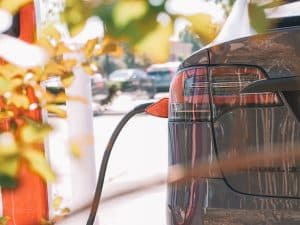Many Australians are wondering if electric vehicles are really more affordable. It’s no secret that EVs are more expensive to purchase, but what makes them appealing is that they are low maintenance and cheap to ‘refuel’. Additionally, with the increasing number of electric vehicles in the market today, there are a lot of choices for Aussies.
The demand for EVs in Australia
There is a huge demand for EVs in Australia, but a lingering problem affecting the whole auto industry is the supply. One of the things that is also lacking in Australia is the penalties for brands that sell many combustion-engined vehicles.
Rising fuel prices also drive the demand for EVs as many vehicle owners find ways to reduce ownership costs and the environmental impact associated with internal-combustion vehicles.
While demand for EVs rises, a lack of penalties for the production of internal-combustion engine vehicles has pulled the reins on a full move to Electric Vehicles. Technology for EVs costs brands billions to develop, and EVs are still more expensive to build than conventional vehicles. Therefore, the profits made from combustion-engined vehicle sales help brands recoup some of the costs. This means that the auto industry remains flooded with cheaper alternatives.

Is 2023 a good time to buy an EV?
Last year, over 33,000 passenger, SUV, and light commercial EVs were sold in Australia, which shows a significant increase compared to 2021. The sales success of EVs in the country is led by the Tesla Model 3 and Tesla Model Y crossover.
However, despite the volume of Tesla sales, the market share of EVs is still small and one of the reasons is the heavier price tags on these EVs.

It seems like times are changing with new EVs from MG and BYD coming to the market that are under $50,000, which provides a competitive price point for their fossil-fuel equivalents.
It’s also worth noting that despite the high electricity and fuel prices, EVs still have a huge advantage when it comes to running costs. EVs can source power from a household outlet, which is also convenient. Additionally, they are a lot cheaper on a per-kilometre basis compared to diesel and petrol.
EV maintenance is simpler, more affordable, and in some cases, less frequent as well.

EV depreciation
One of the things to consider when switching to an electric vehicle is the depreciation. Since EVs have higher upfront costs, the depreciation amount is more significant. Still, as more people switch to EVs, the shares of EVs in the market will grow, leading to price parity. Thus, the tables could turn in which combustion models’ depreciation amounts will take a harder hit.
EV running costs
A great advantage of EVs is that running them costs less. For example, if you have a solar panel system, you can recharge your EV almost for free during the day or night (if you have battery storage).

EV insurance
Currently, EVs are more expensive to insure due to the higher upfront costs, along with fewer trained EV technicians in Australia. Additionally, insurance for vehicles were designed for internal-combusion engines. The uncertainty around the performance of EVs, due to their lack of history and known parts, has created a high learning curve for insurance providers. As EVs increase in popularity, and the industry catches up, insurance should naturally lower over time.
EV maintenance
EVs require routine maintenance on several technological and consumable parts. The electronic systems, such as the battery, require checking and servicing.
Other components, such as tyres, brakes, suspension, power steering, and more are also included in the maintenance costs of an EV.

Fortunately, EVs have fewer parts to maintain. However, it’s important to understand that the maintenance frequency still depends on the car manufacturer. The capped-price servicing costs are usually a bit cheaper for EVs.
The bottom line
The cost of EVs will come down, which means that the economics of owning one will even be more affordable. Additionally, the cost of maintenance for EVs is generally lower than for traditional petrol or diesel cars due to fewer moving parts and less frequent servicing needs.
However, it’s important to factor in the cost of battery replacement, which can be a significant expense.
Overall, while the upfront cost of an EV may be higher than a traditional car, the long-term savings on fuel and maintenance costs can make it a more economical choice in the long run.
If you have yet to test-drive an EV, why not book a test-drive today?
Our professional solar installers in Melbourne will assess and determine your energy needs. We customise a solar panel system in Melbourne to fit the roof size of your property, ensuring you receive the most suitable solar panel system for your Melbourne home, meeting to property’s energy requirements.













































